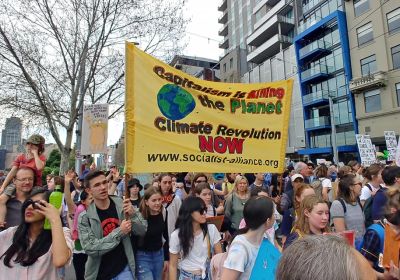
The global Climate Strike was the largest climate protest in history — and could turn out to be a tipping point for radical action on climate change, writes Jim McIlroy.

The global Climate Strike was the largest climate protest in history — and could turn out to be a tipping point for radical action on climate change, writes Jim McIlroy.
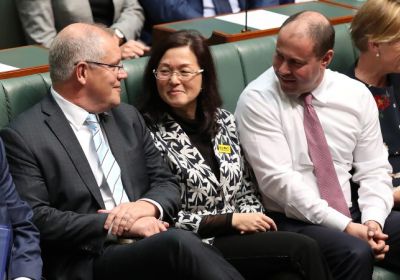
The most farcical side of the parliamentary banter between the Coalition and Labor regarding politicians’ ties to Chinese billionaires and government “agents of foreign influence” is not the pot-calling-the-kettle-black nature of their posture. It is that both studiously avoid mentioning the elephant in the room — the deeply entrenched corporate corruption of parliament and the state apparatus, writes Peter Boyle.
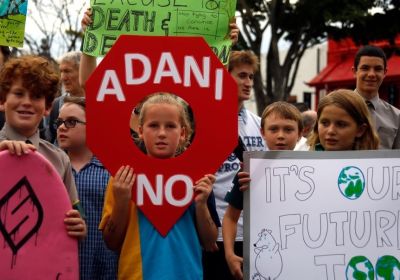
The September 20 global Climate Strike is gaining unprecedented support, including from unlikely quarters, including tech companies, university administrations and even the big four banks, writes Pip Hinman.
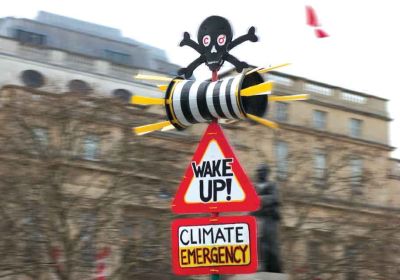
The climate emergency is already impacting all our lives. As it gets worse, we will be affected by more catastrophic floods and storms, bushfires and droughts. Globally there will be less clean water and farmland available. It is a result of an economic system — capitalism — in which private companies’ profit-making is privileged over the real needs of communities and their environments.
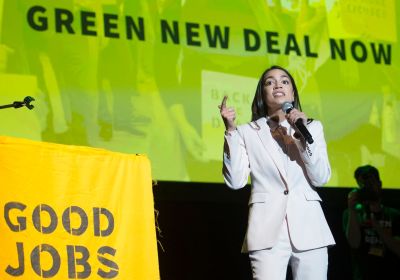
What are the strengths of the “Green New Deal” campaign launched by progressives in the United States and now being taken up by environmental and labour activists in Britain, Australia and other countries? Is it something socialists should support?
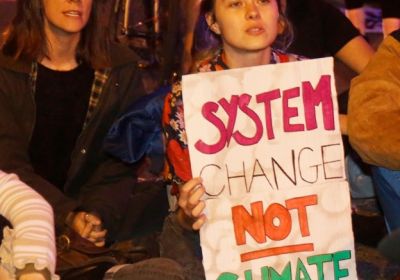
Despite overwhelming evidence that the world has already passed certain tipping points, setting off large and unpredictable changes in the climate, why are governments still refusing to act on the scale and pace required, asks Pip Hinman?
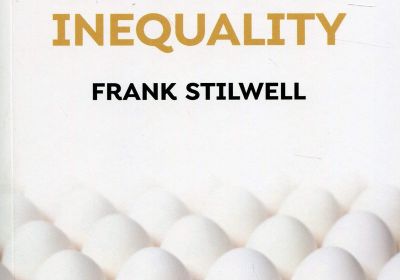
Welcome attention was drawn to the issue of poverty with the 2014 publication of Thomas Piketty’s Capital in the Twenty-first Century, which became an international bestseller.
The Political Economy of Inequality by Frank Stilwell, Emeritus Professor of Political Economy at the University of Sydney, gives a more rounded overview of the issue in a more manageable volume than Piketty’s hefty magnum opus.
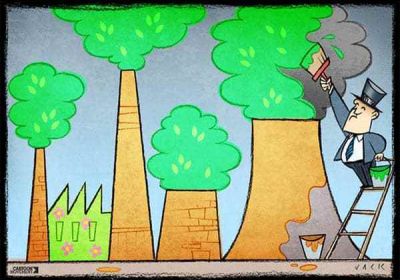
When billionaires advocate for social change, or adopt green issues, they are not doing so for the public good, but to reinforce an unequal status quo, writes Rupen Savoulian.

US presidential candidate, Bernie Sanders gave the following speech at George Washington University on June 12.

The Christchurch massacre has prompted many to reflect on the times we live in.
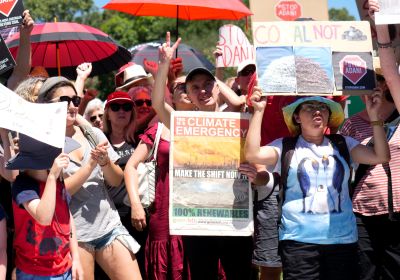
Climate change is the result of an economic system — capitalism — in which private companies' profit-making is privileged over the real needs of communities and their environments. Here is the Socialist Alliance's 11-point climate action plan.